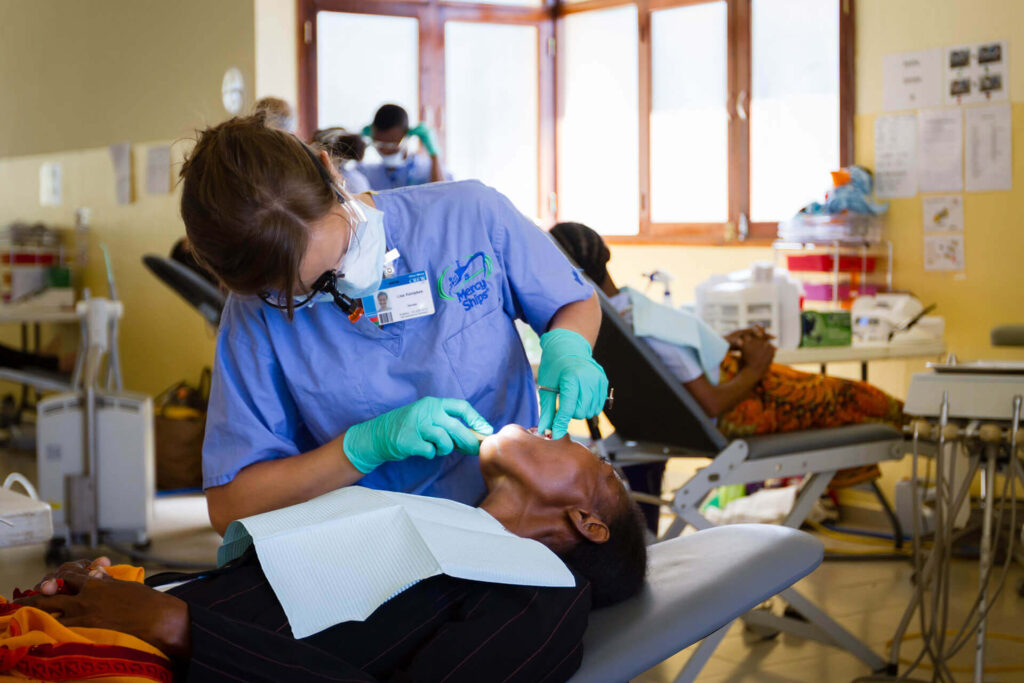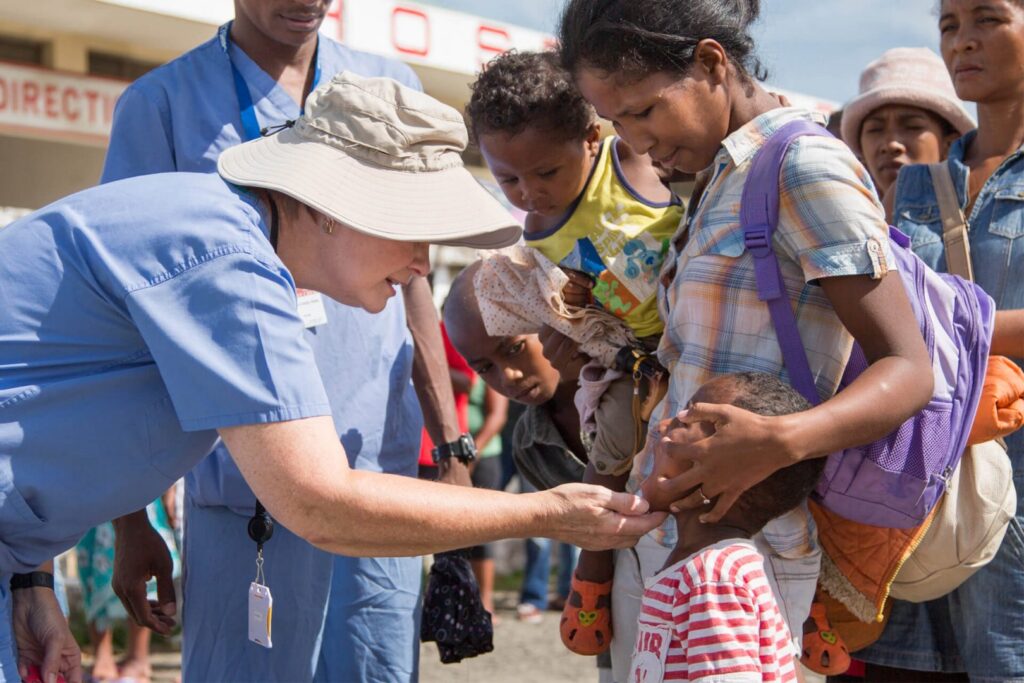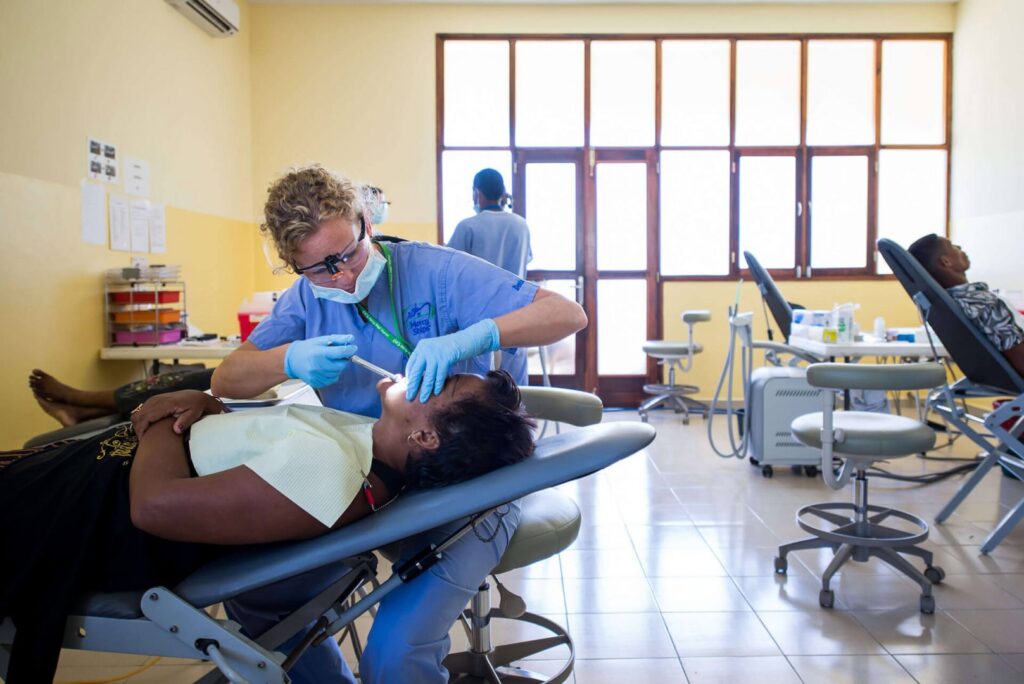Dental / Oral health
Show me your smile!
Dental and Oral Diseases in Developing Nations
Many people in developing countries have never had the privilege of seeing a dentist. Dental help is almost non-existent in much of Africa, and in the other countries Mercy Ships visits, it is unaffordable for the majority of the population. Poor oral hygiene is a risk factor for diseases and can even lead to death.
Santé dentaire et bucco-dentaire
Oral diseases
The most common oral diseases are dental cavities and periodontal (gum) disease, affecting all people regardless of socioeconomic status. In developing countries, changing living conditions due to urbanisation and the adoption of western lifestyles, such as sugar-rich diets, are leading to higher incidence of dental cavities. This situation is further exacerbated by limited access to dental care in low-resource settings. As a result, thousands of people suffer from dental pain for weeks or months on end.
Without proper and timely treatment, some oral infections can even be lethal. Poor oral health can contribute to other diseases such as noma or osteonecrosis (rotten decay) of the jaw. Without treatment, noma results in death in 70-90% of cases.
Those most affected by dental disease and lack of care are the most vulnerable groups: young children, elderly, and the poorest individuals. For children, tooth decay is a particular concern as it impacts childhood nutrition, growth, and weight gain.

Statistics (source: WHO)
- Between 60-80% of school-aged children are affected by the increasing rate of dental cavities.
- Severe periodontal (gum) disease, which may result in tooth loss, is found in 15-20% of middle-aged adults; the rate varies across geographical regions.
- 40-50% of people who are HIV-positive have oral fungal, bacterial or viral infections, which often occur early in the course of HIV infection.
- Oral disease is the fourth most expensive ailment to treat in most industrialized countries.

Transformational Healthcare through Oral Care Programmes
Bringing Hope and Healing
Mercy Ships aims to prevent and reduce the effects of a lack of oral healthcare by providing dental treatment and dental hygiene education and training. Mercy Ships uses hospital ships complemented by dental clinics to deliver free specialised healthcare to the world’s forgotten poor.
Extractions & Procedures
Dental service is almost non-existent in many of the countries Mercy Ships visits. Mercy Ships conducts free dental clinics, providing relief from infected or rotting teeth, performing extractions and inserting fillings.
Oral Hygiene Education
Poor oral hygiene and untreated tooth decay can lead to much more serious conditions such as noma. Mercy Ships dental teams work to improve oral health in developing countries through dental hygiene education and the training of local personnel.
Training & Capacity Building
All day-crew, locals who serve as Mercy Ships crew members, learn skills and technical competencies, like dental assisting and instrument sterilization, helping to increase the in-country knowledge base of oral healthcare. Mercy Ships also, where possible, works alongside local dentists. In doing so, Mercy Ships facilitates an exchange of understanding and expertise between dentists of different cultures who are working within the same discipline.

Accomplishments
Since 1978, Mercy Ships has provided over 488,000 dental treatments/procedures to more than 187,000 patients.
Share



